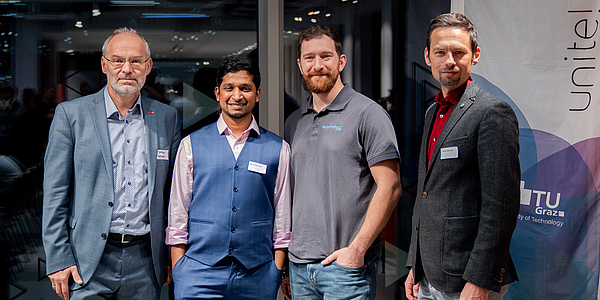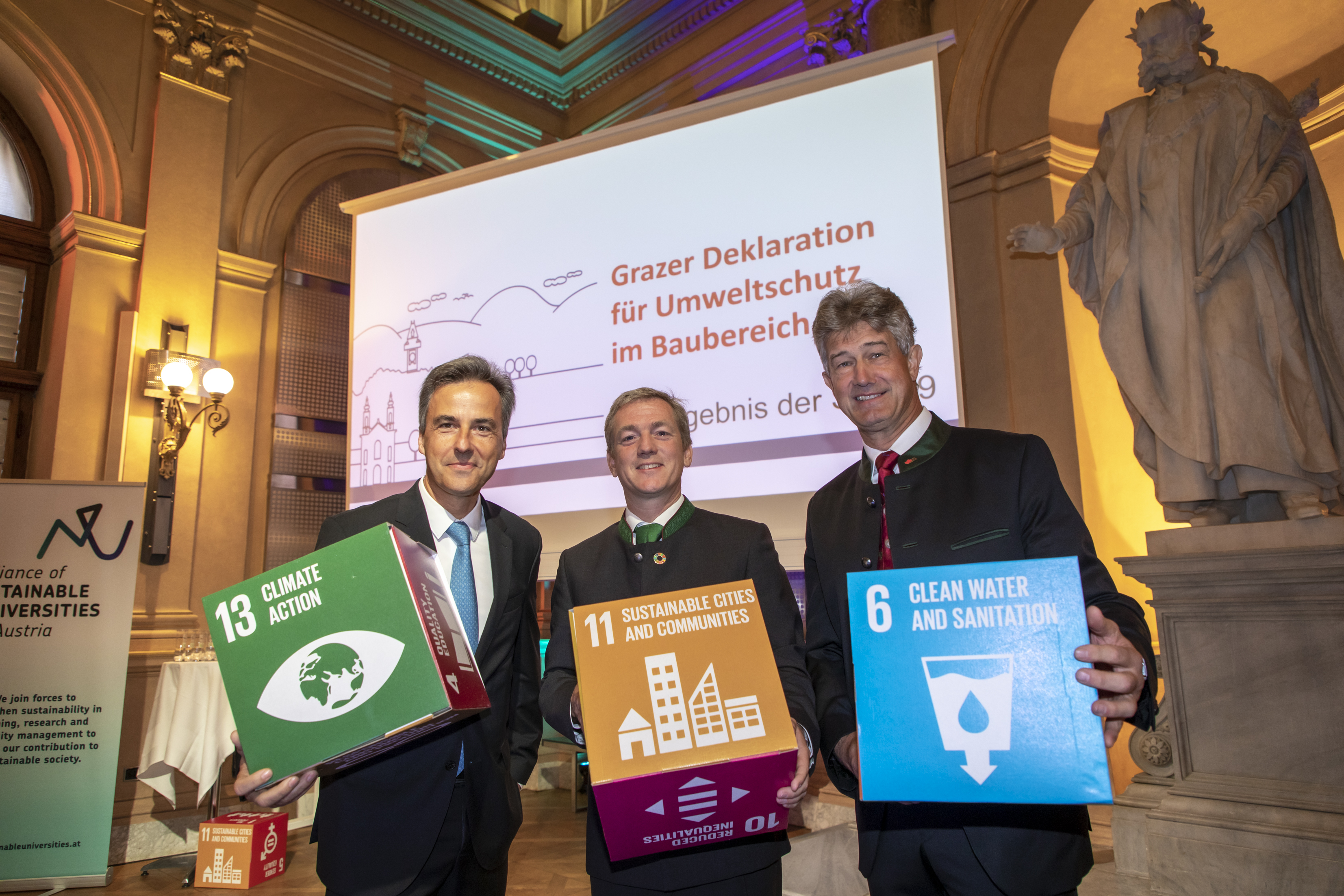Researchers adopt Graz Declaration on Climate Protection in the Building Sector

Additional Picture to download at the end of the text
The delegates also assured industry representatives and politicians of their intention to make a contribution by developing the necessary methodological principles, industry-focused planning and evaluation tools, and climate-friendly construction solutions.
The Graz Declaration on Climate Protection in the Building Sector was formulated, debated and agreed upon by around 400 delegates from over 30 different countries over the last three days at SBE19. This declaration is a response to the comparatively high resource consumption and environmental impact in the built environment: European buildings account for 40% of energy consumption and 36% of greenhouse gas (GHG) emissions. The proportions are even greater if the manufacturing of building products is factored in.
The Graz Declaration calls for decisive action to reduce GHG-emissions. In particular, it reminds policymakers of their role in formulating binding, technologically-neutral requirements for climate protection. Defined planning tasks should be one of the means of introducing and implementing these requirements. The declaration defines the goal of introducing budgets for life cycle GHG-emissions over the entire life time of buildings. It also highlights the need for funding programmes that incentivise measures to reduce GHG-emissions. Ensuring adequate infrastructure and human resources for building research is another requirement. The declaration is supplemented by recommendations for the real estate and finance sectors, as well as a voluntary commitment from the experts, who want to support politicians, businesses and industry in their efforts to achieve the proposed targets.
SBE19
SBE19 Graz – the international conference dedicated to sustainability in the building and real estate sectors, and sustainable neighbourhood and urban development – took place from 11 to 14 September at Graz University of Technology (TU Graz). This year was the first time that the event had a cross-border format encompassing all three German-speaking nations. It was organised and run by TU Graz in conjunction with the University of Natural Resources and Life Sciences, Vienna (BOKU), Karlsruhe Institute of Technology and ETH Zurich. This conference forms part of a series of meetings leading up to the World Sustainable Built Environment (WSBE) conference in Gothenburg in 2020. Participants at this week’s conference in Graz discussed what can be done to reduce GHG-emissoins, conserve resources and prevent risks to health and local environments when planning, constructing and operating buildings. The conference programme featured new planning and evaluation tools, innovative building products and novel business models.
All of the industry representatives and experts who made presentations at the conference agreed that working towards the UN’s Sustainable Development Goals was essential for safeguarding natural resources and laying the foundations for social and economic development. Limiting global warming to under 1.5° Celsius is a crucial objective, which, despite being generally accepted, must be reflected in the tasks and responsibilities of the people who work in the built environment. This requires setting specific requirements and targets for products, building planning and urban development. The Graz Declaration is designed to help with the implementation of these measures.
Kontakt
Contact (Austria):
Alexander PASSER (TU Graz)
Tel.: +43 316 873 7153; alexander.passer@tugraz.at
Contact (Switzerland):
Guillaume HABERT (ETH Zürich)
Tel.: +41 44 633 05 60; habert@ibi.baug.ethz.ch
Contact (Germany):
Thomas LÜTZKENDORF (Karlsruher Institut für Technologie)
Tel.: +49 721 608-48336; thomas.luetzkendorf@kit.edu





